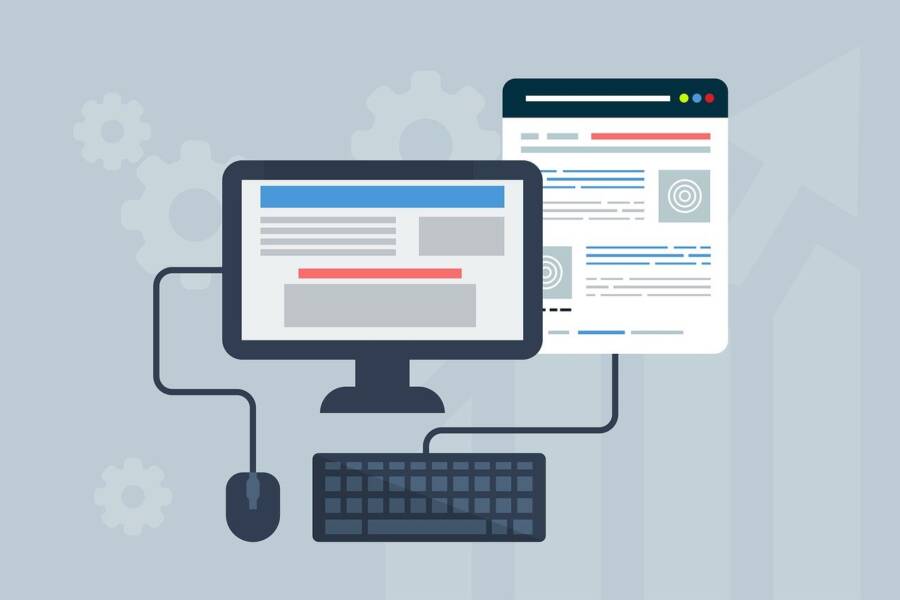The internet has come a long way since its inception, and we are now on the cusp of a new era – Web 3.0. In this article, we’ll explore what Web 3.0 is, what it means for businesses and consumers, and how it will impact our online experiences.

What is Web 3.0?
Web 3.0, also known as the “Semantic Web,” is the next evolution of the internet. It’s a decentralized and interconnected network that enables the exchange of data between machines and humans in a more intelligent, secure, and automated way. The goal of Web 3.0 is to create a more seamless and personalized online experience by integrating data from various sources and devices.
How does Web 3.0 differ from Web 2.0?
Web 2.0 introduced user-generated content, social networking, and interactive web applications. Web 3.0 takes this further by incorporating machine learning, artificial intelligence, and blockchain technology to create a more intelligent and decentralized network. Web 3.0 aims to make the internet more user-centric, by providing users with more control over their data and privacy.
The Benefits of Web 3.0 for Businesses
Web 3.0 presents a significant opportunity for businesses to leverage emerging technologies to create more personalized and engaging online experiences for their customers. With Web 3.0, businesses can collect and analyze data from multiple sources to gain insights into customer behavior, preferences, and needs. This enables businesses to offer personalized products and services that meet the unique needs of their customers, resulting in increased customer loyalty and higher sales.
The Benefits of Web 3.0 for Consumers
Web 3.0 offers several benefits to consumers, including increased control over their data and privacy. With Web 3.0, consumers can choose which data they share with businesses and have greater transparency over how their data is being used. Web 3.0 also offers a more seamless and personalized online experience, with recommendations and content tailored to each user’s preferences and interests.
Web 3.0 and Blockchain Technology
Blockchain technology is a key enabler of Web 3.0, providing a secure and decentralized way to exchange data and value. With blockchain, users can securely store and share data without the need for intermediaries, such as banks or social media platforms. Blockchain technology also enables secure and transparent transactions, making it an ideal solution for e-commerce and financial services.
The Challenges of Web 3.0
While Web 3.0 presents many opportunities, there are also several challenges to overcome. One of the biggest challenges is interoperability, as different blockchain networks and protocols may not be compatible with each other. Another challenge is scalability, as current blockchain networks may not be able to handle the volume of transactions required for mainstream adoption.
The Future of Web 3.0
Despite the challenges, the future of Web 3.0 looks bright. As more businesses and consumers adopt blockchain technology and decentralized networks, the internet will become more transparent, secure, and efficient. Web 3.0 will create new opportunities for innovation, entrepreneurship, and social impact, leading to a more connected and inclusive digital world.
Web 3.0 and Metaverse
The metaverse and Web 3.0 represent a new era of internet technology, with the potential to create a more open, democratic, and innovative online environment. While there are challenges and risks associated with these new technologies, the benefits are significant, and with the right approach, we can create a more equitable and sustainable online world.
Together, the metaverse and Web 3.0 have the potential to create a new kind of internet experience, where users can create, own, and trade virtual assets, interact with each other in real-time, and engage in decentralized commerce.
One of the key benefits of the metaverse and Web 3.0 is the ability to create a more democratic and equitable online environment. With decentralized technologies, users have greater control over their data and can participate in the creation and ownership of digital assets. This can lead to a more inclusive and diverse internet, where users from all backgrounds have a voice and a stake in the online world.
Another benefit of the metaverse and Web 3.0 is the potential for new forms of commerce and entrepreneurship. In a decentralized, peer-to-peer economy, users can create and sell virtual assets, such as clothing, furniture, and even virtual real estate. This can create new opportunities for creators and entrepreneurs, and potentially disrupt traditional industries.